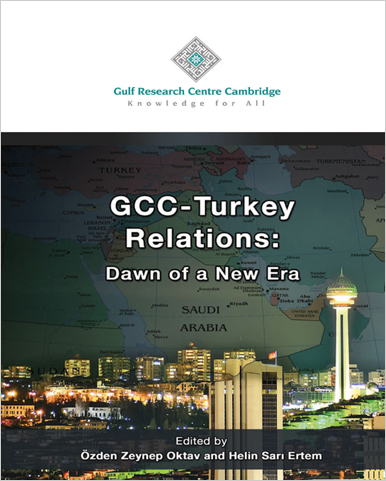GCC–Turkey Relations: Dawn of a New Era
Publisher: Gulf Research Center Cambridge
Published year: 2014 - 2015
GRM year: 2013
In 2008, Turkey became the first country outside the Gulf to be given the status of strategic partner of the GCC. This was a turning point in Turkey-GCC relations as, for long, Turkey’s relations with the region had been quite weak, and the two sides had not spent much effort to revive trust-based mutual relations since the Ottoman period. Since 2008, relations have improved in an unprecedented way. The signing of a Memorandum of Understanding in Jeddah in December 2011 laid the foundation of a regular dialogue at the ministerial level, while Turkey’s trade volumes with the Gulf monarchies reached $19.6 billion in 2012. What explains these remarkable changes? What can be done to encourage exchange of technical expertise and information, improve economic relations, and initiate negotiations to establish free trade zones? The contributions in this volume address these questions and evaluate the historical, cultural, economic, and political reasons for the improving GCC-Turkey ties with a special emphasis on changing security perceptions after the start of the Arab Spring, and specifically the Syrian civil war. They explore the potential areas for further cooperation and the impact of economic interdependence, cultural interactions, and power balances on the evolving relationship between the two sides. To sum up, this timely book provides comprehensive assessments from a well-informed multinational group of authors, thus making an interdisciplinary contribution to the existing literature on GCC-Turkey relations.
